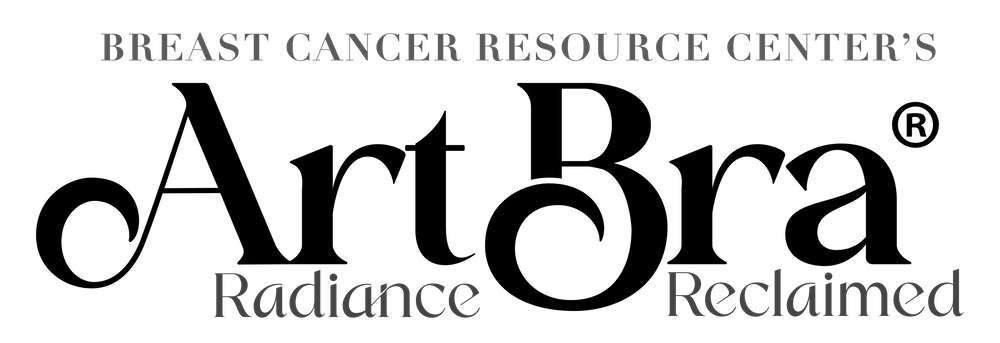
“Talking helps, so don’t give up!”
Lorraine, aged 52, finished active treatment for breast cancer 18 months ago and is taking tamoxifen. After her last chemo, she felt great relief. But since a “false alarm” at a recent mammogram, she feels fearful and anxious much of the day. She has trouble sleeping and reports a repetitive nightmare that the cancer is back. She tries to put on a cheerful face to others because she doesn’t want to bother them. After all, everyone was so supportive during active treatment! She feels irritable and exhausted and very alone with her worry. She is embarrassed she’s not yet “over it” or that she may seem a less “spiritual” person. She notices every sensation in her body and wonders if it is a recurrence. On the few occasions that she eats a treat with sugar, she ruminates on whether it’s causing an immediate recurrence. She’s on high alert, the worst of the cancer experience never far from her mind. She’s unable to relax or be hopeful about the future because she fears that when she lets her guard down she will be blindsided again.
In contrast, Jocelyn never mentions to anyone that she had a lumpectomy and radiation less than 3 months ago. Her friends and family are afraid to bring it up and ask how she is doing because she cuts them off saying “I don’t want to talk about it.” She accepts few social invitations. She has found herself drinking more wine in the evenings and spending a lot of time in bed. She notices a feeling of numbness and detachment when she is with her family. She does not share this feeling, ashamed that they might think she does not care for them. She sometimes fakes enjoyment to make others comfortable, but actually finds very little pleasure and cannot remember the last time she genuinely laughed. She seems surprised by the idea that the cancer experience could still affect her. She is very self critical at not being more productive. She treats her fatigue like a character flaw.
Jessica was diagnosed with metastatic breast cancer 5 years ago. She has undergone grueling treatments since then. Recently, she was surprised to be told she was NED (no evidence of disease). She wants to feel happy about it and enjoy these moments, but instead she feels confused and disoriented. Where should she focus her time and energy? What do people expect from her now? She moves between feeling anxious and on high alert with feeling depressed and shut down.
Do any of these feelings or behaviors sound familiar? Most cancer survivors have their own variations of these “symptoms” that make up Post Traumatic Stress Disorder (PTSD). They are so common, in fact, that you might be inclined to dismiss or minimize them! (A 2016 German study shows that up to one half of women diagnosed with breast cancer experience symptoms of PTSD.
Many survivors are reluctant to share “negative” feelings, believing that loved ones prefer to see the Grateful Warrior face of their experience, not the lingering effects of a traumatic experience.
Gratitude and grit have no doubt been part of your journey, but they are not the whole story.
Recent research in neurobiology finds that ignoring or repressing emotions or memories does not make them disappear. Instead, the limbic system, the emotional part of the brain, stays activated as though the initial experience is actually happening.
You might not be talking about it, but you are still feeling unexpressed emotions, in the mind or in the body.
What is PTSD?
Post Traumatic Stress Disorder (PTSD) can occur when you were exposed to a traumatic event that included potential death or serious injury, or a threat to the physical integrity of self (your body) and your response involved intense fear, helplessness, or horror. (DSM-5)
Usually PTSD shows up in 2 ways:
- You “re-experience” the feeling of the trauma with intense distress as though it were still happening. You may have obsessive or intrusive thoughts, or dreams. You may engage in “checking” all day. For example, checking your body for signs of recurrence and online for information.
- You avoid anything that reminds you of the trauma. This includes conversations, people, places. You can feel numb or emotionally detached. You restrict your activities. You are reluctant to imagine the future and doubt you will have the marriage, friendships, career, future you want.
Again, these symptoms are common for MOST survivors and eventually pass. But if they are interfering over time with the quality of your life, relationships, and functioning, you should seek help because help IS out there.
How to seek help:
In addition to healthy habits like exercise, balanced diet, yoga, meditation, and being “unplugged” in nature, find other people who can help you with your emotional recovery.
Talking with your tribe helps. Soldiers, hurricane survivors, international service workers, police and firefighters all need one another after a traumatic experience. Reach out to trusted organizations or doctors for referrals to good therapists and support groups. If the first therapist is not a fit for you, keep trying. You deserve help and support. Here are some ideas for professional support:
- Find individual therapy. It’s most affordable to use someone in network on your insurance plan. If this is not an option, check out these Austin sliding scale resources for therapy: https://justmind.org/affordable-counseling-in-austin/
- Seek out support groups and group therapy experiences which allow you to deepen your healing, express yourself and be felt and heard.
Choose spaces that allow you to show up just as you are, no pressure or false positivity – just authenticity – which includes acknowledging the range of feelings from grief to anger to joy.
- Don’t expect a quick fix. Be willing to give yourself as much support and nurturing as possible for as long as you need.
Kelly Inselmann is a psychotherapist, kundalini yoga therapist, and a Certified Group Therapist in Austin, TX. She is also a 10 year breast cancer survivor. The founder of JoyBoots, she offers cutting edge Yoga and Talk Therapy groups, classes, workshops, and retreats to help cancer survivors recover emotionally and reclaim their vitality. More information at www.joybootsforcancersurvivors.com
BCRC Patient Navigators can connect you with mental health therapy and family support through our community partner. BCRC also provides in person support circles as well as private online forums. Please contact your navigator to inquire about these programs or call 512-524-2560.


